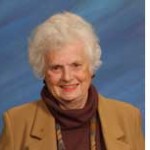By Natasha Josefowitz, Ph.D.

LA JOLLA, California — You who are still reasonably young, how do you picture yourself in old age, like in your 80s, 90s, or even at 100? Do you see yourself as a tottering old person, disabled and dependent on others, or do you picture yourself as dispensing sought-after wisdom, adventurous, full of stories, creative, exploring new ideas, curious about the world? Warning: What you believe will tend to happen, because you will make it so.
Life expectancy is rising worldwide. Currently over 11 percent of the world’s population are people 60 and older. The United Nations Population Fund estimates that by 2050 that number will rise to 20 percent. Every day in America 10,000 people turn 65 and join MediCare. In addition, the 85+ population is growing the fastest.
It feels counter-intuitive, but the more economically advanced the country, the less favorable the attitude towards the elderly due to industrialization lowering the status of older folks. Here in America, we are more youth obsessed than in other countries. But many societies honor the experience associated with old age. According to Wikipedia, “mzee” in Swahili, spoken in eastern Africa, is a term used by younger speakers to communicate a high level of respect for elders.” “In Hawaiian, the word ‘Küpuna’ means not only elders, but also knowledge, experience, and expertise.” “In Japanese, the suffix ‘san’ reveals the deep veneration for the old.” Not so in America…here we deal with ageism on a daily basis. The old are discriminated against, dismissed, made fun of, and portrayed in the media as either fools or irrelevant.
This attitude makes it more difficult for older people to maintain a positive self-perception; this is important because the way older people view themselves correlates with health and longevity. A positive self-perception is associated with both well-being and lower mortality no matter what the reality. We need to change our culture’s view of our aging population.
There is a fear of growing old. We manage this fear by avoiding looking old—as if we could delay the inevitable—hence facelifts, Botox injections, hair dyes, obsessive workouts, and buying all the anti-aging products advertised on TV. Part of this is due to the American culture having a negative perception of aging while glorifying youth. Saying “she is old” is viewed as derogatory instead of “Wow, she must be very wise and have seen and lived through a lot in her lifetime.”
Our culture defines successful aging as acting young. But truly successful aging is adapting well to one’s age, being resilient, living on a learning curve, embracing what life remains with honesty and courage, contributing, and making the most of relationships with adult children and grandchildren. I admit to being guilty of propagating the idea that young is better than old by showing off going down stairs without holding the banister and racing my grandchildren down the hall. I am trying to act young, shouting with glee, “I am twenty. Nothing hurts.” After a recent bout with a fractured sacrum, I have changed my tune to honor cautiousness, a slower step, and holding on to the banister. When people compliment me for acting young, I respond with “This is what 92 looks like.”
Yes, hearing and sight are diminished, but can be aided with glasses and hearing aids. “Reaction time may slow with age, while knowledge of world events and wisdom may expand.” (Wikipedia) We see the big picture better than our younger friends. Our bodies may be weaker and our memories fading, but we have increased self-confidence, say what we think, and speak the truth with the voice of authority. We have learned to cope with adversity, accept uncertainty, see contradictions and both sides of an argument.
So instead of stereotyping us and making us invisible, probe our wisdom and our emotional intelligence. We have learned to let go, we have learned patience and acceptance, we are your role models. Our legacy is our wisdom, so listen to us.
Here is an excerpt of a poem I wrote over ten years ago that applies just as much today as it did back then (Been There, Done That, Doing It Better! Blue Mountain Arts, 2009):
We are living in a culture of youth worship
dominated by speed, immediacy, newness,
control, competitiveness, profit, exaggerations,
media blitz, variety, constant entertainment,
always wanting more, believing that we need more,
we are living in a culture of wrong messages.
Let us change our culture to encourage valuing old age for its wisdom, profundity, and introspection. We still have a lot to offer.
© Natasha Josefowitz. This article appeared initially in the La Jolla Village News. You may comment to natasha.josefowitz@sdjewishworld.com